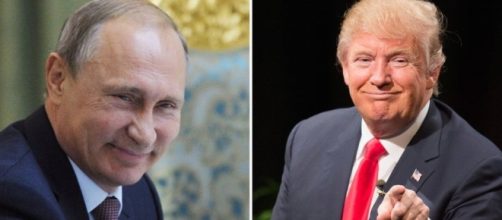The “Protocols of the elders of Zion” was created in Russia over a century ago to create the conditions to continue the pogroms against the Jews that were government policy in Imperial Russia. Although long proven as a hoax they are still circulated by those who wish to prove world conspiracies. The fact that this document is still believed to be authentic by certain fanatic groups shows the difficulties in considering the latest controversy between the United States and Russia.
Spy versus spy
Vladimir Putin is a graduate of the KGB Academy and well knows the value of disinformation, such as the Protocols, to cause confusion in the enemy, a confusion to be exploited.
Furthermore, the fate of Russian dissidents overseas such as Alexander Litvinenko in London and the deaths of numerous opposition journalists show that he is a man who knows few boundaries in trying to achieve his aims. This must always be remembered when considering any allegations against the Russian Leader.
At the same time it would be naïve to think the U.S has not carried out any actions against Russia in the past. The frequent spy flights over the former USSR which eventually led to the Francis Gary Powers controversy were part of the many covert missions undertaken against its one-time wartime ally. This history between the superpowers effectively means that nobody can discount the probability of Russian hacking of the recent presidential campaign.
The simple fact that Republican leaders such John McCain and Mitch McConnell have publicly stated their support for the accusations that #Russia hacked and Donald Trump on Twitter himself has finally stated that the probability exists shows that the allegations have more than a shred of truth. In addition, the very public reaction by President Barak Obama in expelling 35 Russian diplomats from the United States would not have occurred without compelling and convincing evidence.
Limits to information available
It would be unrealistic for anyone to think that the American secret services would make public all the information that they have gathered that convinced the country’s political establishment. One reason is purely operational, the services would not want to reveal their sources and procedures for this would make it easier for the Russians to block American intelligence gathering, as well as to neutralize any American sources residing in Russia.
Unfortunately, public consideration of these matters is being hindered by the exaggerated political climate in the United States that came from an overheated presidential campaign. Much of the public reaction over the last few days has been on the basis of the automatic support for Trump or opposition to him rather than the merits of faults of the information supplied so far. The lack of detailed information has worsened this situation as the public and not just in America, well remembers the problems created by the manipulation of information in the claims of the existence of Weapons of Mass Destructions to justify the first Iraq War.
There is no easy solution to the impasse and it may well be that the detailed information may not become public for generations.
Where to now?
Yet this must not stop the country, beginning with the political leadership on both sides, from confronting the controversy. There are two issues at stake. The first is the legitimacy of Donald Trump’s victory, not on the basis of the vote, but on the consequences of the Russian hacking. The second is on the international image of the United States which will have effects on its reputation and as a consequence its leadership role with its allies.
It is still too soon to make any predictions of future developments, we can only watch and wait, but we must always remember that our information is limited and therefore we should not yet make a final conclusion. Finally, America’s political leaders have the responsibility to resolve these issues quickly because they are too damaging to be allowed to fester.

